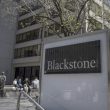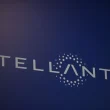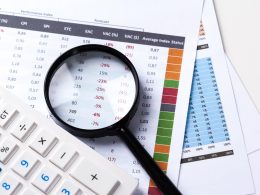At the Datacloud Global Congress, GRESB and Infrastructure Masons (iMasons) announced a partnership to develop the world’s first sustainability benchmark specifically designed for data centres – a rapidly expanding yet resource-intensive asset class.
GRESB, the global benchmark for environmental, social and governance (ESG) performance in real assets, and iMasons, a global non-profit association for digital infrastructure professionals, will jointly create a tailored framework to help investors and managers assess sustainability performance across data centre operations. A pilot assessment is scheduled for the third quarter of 2025, with full market participation expected in 2026.
“Digital infrastructure plays a critical role in real asset portfolios, but data centres face unique sustainability challenges, particularly around energy consumption and operational complexity,” said Dr Chris Pyke, Chief Innovation Officer at GRESB. “This benchmark will deliver targeted, material insights that help investors and operators make more informed decisions.”
The partnership draws on GRESB’s experience with institutional investors and its existing real estate and infrastructure benchmarks, alongside iMasons’ industry expertise. To inform the new standard, the organisations established a Data Centres Working Group comprising over 20 representatives from across technology, asset management, energy, and automation sectors.
Data centres have been included in GRESB’s broader assessments, with 41 reporting entities covering 842 facilities and assets worth USD 115 billion. However, the need for a dedicated benchmark has grown as energy consumption in data centres rises. According to GRESB, the average energy use per asset increased from 59.6 million kWh in 2020 to 76 million kWh in 2024 – reflecting both sector expansion and the proliferation of high-capacity facilities.
Santiago Suinaga, CEO of iMasons, emphasised the value of tailored insight: “As an emerging asset class, data centres offer vast opportunities but also demand sector-specific performance data. This benchmark will equip investors and developers with actionable metrics to improve sustainability outcomes and long-term value.”
Early sessions of the Working Group have identified priority performance indicators, including energy use, water consumption, and workforce health and safety. Social and environmental risks have also been examined, with the goal of aligning operational realities with investor expectations.
Bethany Brantley, Co-Chair of the Working Group and Head of Sustainability at STACK Infrastructure, said: “This initiative recognises that any meaningful benchmark must reflect the diverse ecosystem—developers, tenants, investors, and operators. That diversity is our strength, ensuring a robust, relevant, and practical tool.”
The initiative comes amid unprecedented capital flows into the data centre market. According to JLL’s Global Data Centre Outlook, USD 170 billion in asset value is seeking secure development or long-term financing in 2025. As scrutiny over the sector’s environmental impact intensifies, the forthcoming GRESB-iMasons benchmark aims to offer transparency, standardisation, and guidance for responsible growth.





















